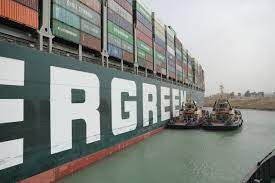Fires on board vessels remain among the biggest safety issues for the maritime industry
Fires on board vessels remain among the biggest safety issues for the maritime industry, as demonstrated by incidents this week involving the Felicity Ace cargo/RoRo ship, which caught fire in the Atlantic while carrying thousands of cars and the Euroferry Olympia passenger ferry fire off the coast of Greece.
According to analysis by Russell Group, the blaze on the Felicity Ace ship off the coast of Portugal’s Azores Islands is expected to generate at least $155m in expected losses for Volkswagen, Porsche, Audi, and Lamborghini vehicles on board the vessel.
The total dollar value of goods on the ship is estimated to be $438m and of that an estimated $401 million was for cars and goods vehicles according to Russell’s analysis.
The Felicity Ace ship was travelling from Emden, Germany where Volkswagen have a large factory to Davisville in Rhode Island, USA.
Suki Basi, Russell Group MD commented on the figures: “These figures showed once again the precariousness of global supply chains. The incident comes at a bad time for global carmakers who are in the middle of a supply chain crisis sourcing semiconductors, resulting in new delays for new cars. An event like this will not do a great deal in instilling trust with consumers.
“Using our ALPS Scenario Factory, we identified that the Volkswagen brand and its subsidiaries do indeed have a significant exposure to this event, running into the millions.
Additional emphasis on risk management needed
Meanwhile, analysis from Allianz Global Corporate & Specialty shows that the number of fires on board large vessels has increased significantly in recent years.
There was a record 40 cargo-related fire incidents alone in 2019 or one every 10 days. Across all vessel types, the number of fires/explosions resulting in total losses hit a four-year high of 10 at the end of 2020– accounting for around one in five total losses around the world.
“The shipping industry has seen its safety record improve significantly over the past decade with the number of total losses now at record lows,” says Captain Rahul Khanna, Global Head of Marine Risk Consulting at AGCS.
“However, fires on car carriers, Roll-on/Roll-off ferries (RoRos), container ships and other vessels remain among the biggest worries for the sector, as demonstrated by the recent rise in incidents.
“RoRo and car carrier vessels in particular can be more exposed to fire and stability issues than other vessels, and require additional emphasis on risk management. To facilitate carriage of automobiles the internal spaces are not divided into separate sections like other cargo ships. The lack of internal bulkheads can have an adverse impact on fire safety and a small fire on one vehicle or battery can grow out of control very quickly.
“Vehicles are not easily accessible once loading has been completed. The large volume of air inside the open cargo decks provides a ready supply of oxygen in case of fire. At AGCS, we look deeply into the risk management of operators and have worked with a number of companies operating ro-ro vessels to agree a robust risk management program.”
The Felicity Ace was carrying more than 4,000 cars according to various news sources.




















No comments yet